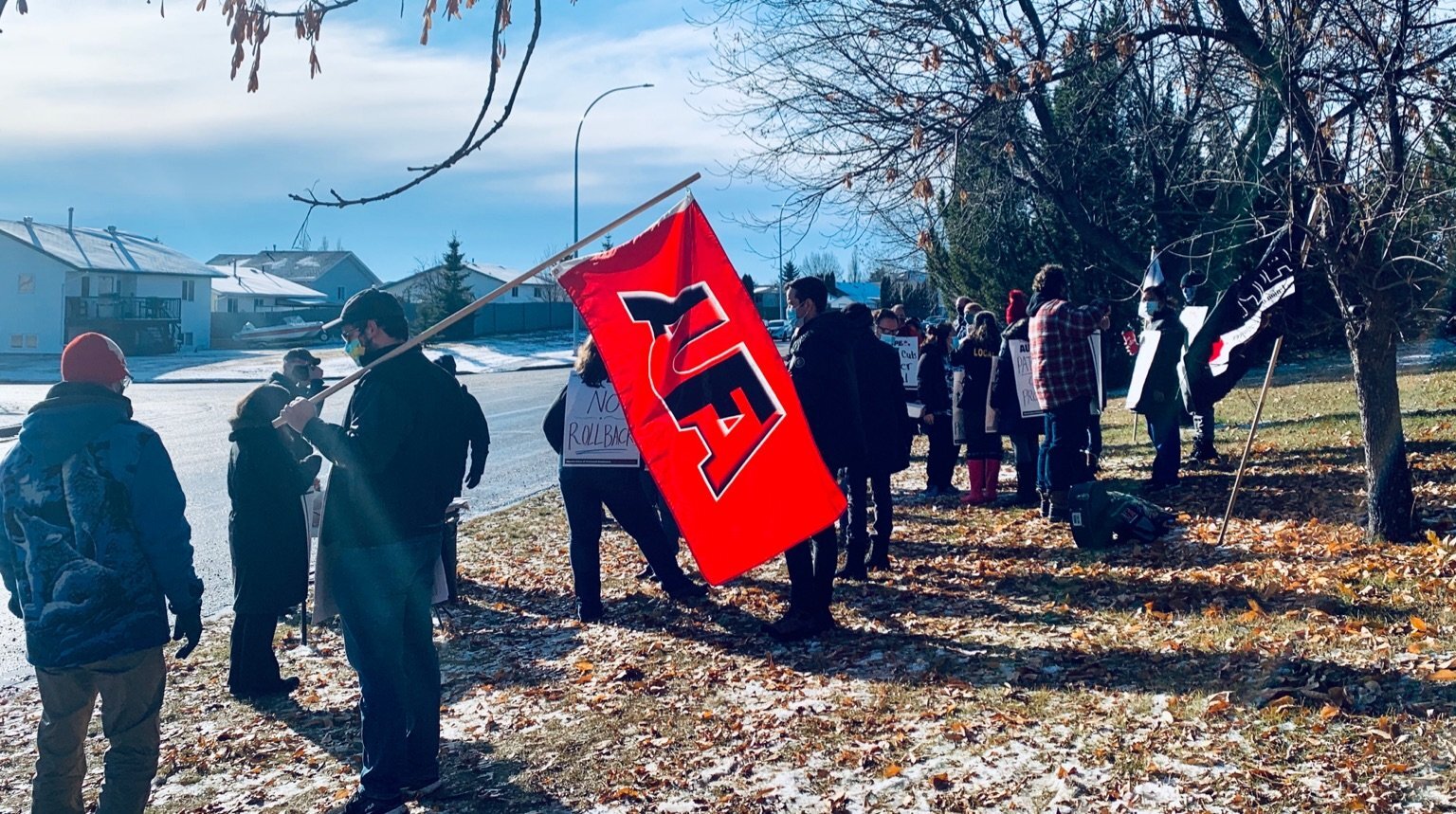AUFA strike vote to proceed on Monday
On Monday, April 4, AUFA members will be voting on whether to authorize a strike. The AUFA Executive is urging all AUFA members to vote ‘Yes” in order to give the bargaining team the strongest possible leverage to get a deal. This blog outlines how we got here, why this vote is taking place, and what it means.
How we got here
Our collective agreement expired on June 30, 2020. Bargaining has been going on since March of 2021. AUFA’s executive delayed a previously scheduled strike vote to allow AUFA members to decide whether or not to accept a mediator’s recommended settlement. On Tuesday, 77% of AUFA voters rejected the recommendation.
AUFA’s bargaining team informed the mediator of the rejection on Wednesday. AUFA’s bargaining team also offered to return to the bargaining table with AU. This included an offer to further delay the strike vote conditioned upon AU agreeing not to authorize a lockout while bargaining was taking place.
AU has not accepted our offer to continue bargaining (although the offer remains open). Instead, they have tried to stall the April 4 strike vote at the Labour Board via a series of spurious objections. For example, AU says it is (suddenly) concerned that AUFA’s planned online vote will not allow AUFA members adequate opportunity to vote.
AUFA’s strike-vote mechanism is exactly the same system AUFA used to vote on the mediator’s recommendation on Tuesday. That vote saw 91.7% of members choose to cast ballots. AU’s last-minute objections are best understood as a delaying tactic. The Labour Board has declined to take action on AU’s objections and the vote will proceed.
It is difficult to know why AU is not taking advantage of AUFA’s offer to delay the strike vote by returning to the table and continuing bargaining. AU may be waiting to see if AUFA members are serious about striking before deciding whether to shift their position.
Why a strike vote
The purpose of authorizing a strike is to increase the AUFA bargaining team’s leverage to negotiate a mutually acceptable deal at the table. Often, but not always, a strong vote to authorize a strike motivates employers to reconsider their earlier bottom line. This happens because authorizing a strike means there are now real and immediate consequences for continued intransigence by the employer.
Given AU’s seeming lack of interest in further bargaining, a strike vote is also the next step in the bargaining process. If AU chooses to ignore AUFA’s efforts to resume bargaining, AU may need to experience the effects of a work stoppage before it changes its approach.
A strike would be an unfortunate outcome. In the end, however, only AU has the power to avoid a strike. And that requires AU to engage with AUFA in meaningful negotiations.
What a strike vote means
A strike vote authorizes the AUFA executive to commence a strike on 72-hours of notice.
A strike vote does not mean AUFA will immediately be serving notice to strike.
In announcing the results of Tuesday’s vote, the AUFA executive committed to not serving strike notice without a further vote of the membership, unless AU serves AUFA notice of its intention to lock AUFA out.
Authorizing a strike does, however, take us one step closer to actually going on strike. AUFA’s Job Action Committee has finalized strike plans and you will be seeing further information about these plans once the strike vote is completed.
Next steps
On Monday, you will receive an email invitation inviting you to cast an electronic vote, either authorizing or not authorizing a strike.
The AUFA executive is recommending members authorize a strike. A strong strike vote maximizes our ability to bring AU back to the table and gives the bargaining team the leverage its needs to get a deal.
If the membership authorizes a strike, the executive will not serve notice of a strike unless the members specifically authorize it to do so in a subsequent vote (unless AU serves lockout notice).
In solidarity,
Dave Powell
AUFA President

